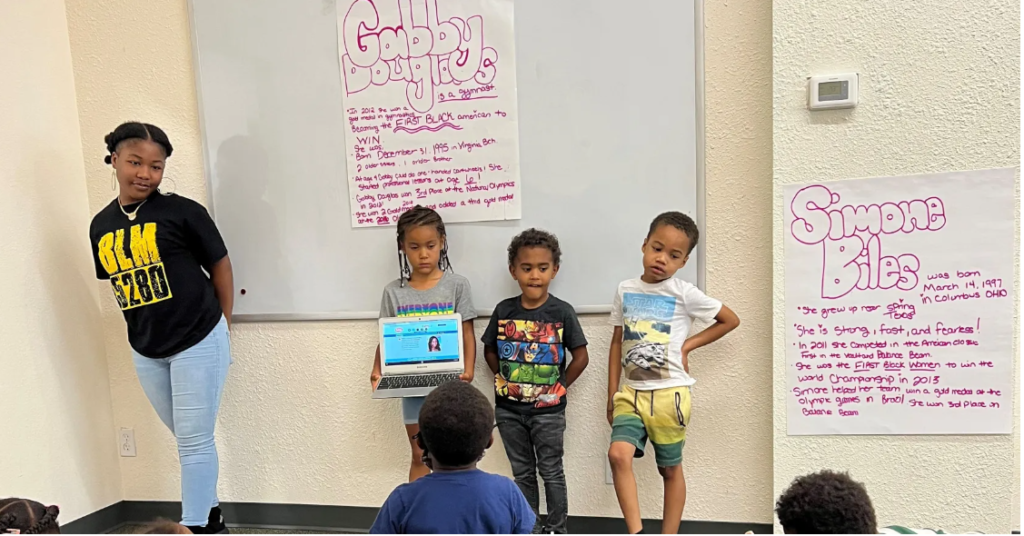AURORA | A sex education book has been removed from circulation in Cherry Creek School District libraries following a parent complaint that prompted an internal review of three books.
“This was a decision that we take very seriously because we want our libraries to have a robust selection of materials and perspectives about lived experiences,” Cherry Creek spokesperson Lauren Snell said.
The district reviewed “Let’s Talk About It: The Teen’s Guide to Sex, Relationships and Being a Human” by Erika Moen and Matthew Nolan, “Gender Queer: A Memoir” by Maia Kobabe and “Flamer” by Mike Curato and ultimately decided to remove “Let’s Talk About It” from district libraries, Snell confirmed to The Sentinel Wednesday.
According to the district this is the only removal request that has happened so far this school year, a time in which school and public libraries across the nation have faced an unprecedented number of attempts to have books removed.
The books in question have been the subject of numerous removal attempts at school districts across the country this year, according to news reports.
Published last year, “Let’s Talk About It” is an illustrated sex education guide aimed at a young adult audience and includes information about LGBTQ identity. According to the publisher, the book covers “relationships, friendships, gender, sexuality, anatomy, body image, safe sex, sexting, jealousy, rejection, sex education” and other topics.
During public comment at the Cherry Creek board of education’s Sept. 12 meeting, a speaker named Sarah King, who identified herself as the parent of four students in the district, said the book has been temporarily removed from a school library at her request, stating that she believed it was obscene and not appropriate for children.
“I want to express my utter shock and despair that this book was in a school library in the first place,” King said.
In the book, she said “you will find things that are reserved for the darkest corners of the internet and would be shocking to the decent adults of this community, much less children.”
She also expressed frustration that “Gender Queer” and “Flamer” were available in school libraries. She said that the book promoted obscenity with drawings and descriptions of “vile and depraved acts” and listed a series of specific page numbers that had inappropriate content.
“These books sexualize children and destroy their innocence,” King said.
“Let’s Talk About It” contains anatomical drawings of genitalia as well as several illustrations of people engaging in sexual activity. It also includes frank discussions of sex and relationships and topics including sexting, pornography, gender expression and sexual identity, STDs and birth control.
“Gender Queer” is an illustrated memoir that discusses the author’s adolescence and experience of coming out as nonbinary (someone who identifies as being neither a man or a woman). It includes several sexually explicit illustrations, according to news reports. “Flamer” is a semi-autobiographical graphic novel about a gay teenage boy struggling with his identity due to bullying and homophobia.
Following King’s complaint, the books underwent a review process conducted by library media specialists and administrators at the district and school level, during which time the book were not be available to be checked out, Snell said.
“I can confirm that we temporarily removed the book referenced by the mom from the library for review based on Board of Education Policy IJL,” a district statement provided to The Sentinel read. “As always, families can have individual conversations with their children about the library materials they check out.”
The district’s policy regarding library materials selection, which was adopted and last revised in 1998, states that library media specialists should assess collections regularly and that criteria for removing materials includes limited circulation, out-of-date or inaccurate information and “inappropriate content for the age, maturity of the intended audience, which may include explicit adult or sexual content or extreme violence,” among other factors.
“The Board of Education of the Cherry Creek School District maintains that the purpose of education is, in part, to develop within students the capacity to reason, to form decisions based on intelligent analysis, to communicate, and to live compassionately with one another,” the policy states. “To meet these educational goals, the Board encourages the selection of a wide range of media on all levels of difficulty, with diversity of appeal, and different points of view. The Board of Education supports the principles of intellectual and academic freedom.”
The policy says that parents, teachers and students are encouraged to reach out to library staff directly if they have concerns about any specific materials.
Ultimately, Snell said the district’s team decided to keep “Flamer” and “Gender Queer” on shelves and remove “Let’s Talk About It” because it included content that was inappropriate for young people and contained some material about sexting that the district was worried could promote illegal behavior.
One of the book’s chapters is focused around sexting, and discusses the etiquette, legality and internet safety facets of exchanging naked photos with another person.
While the book generally takes a positive stance on sexting, it also explicitly states that exchanging nude images of a minor is illegal and should not be done by anyone under 18.
“As exciting as sexting is, there are serious legal consequences for sharing naked photos of folks under eighteen, even if the photos are of you and you’re sharing them with someone who’s the same age,” the book said.
“Let’s Talk About It” was previously on shelves in the libraries at Eaglecrest and Cherokee Trail high schools but according to district records had not been checked out, Snell said. Reader interest is one of the factors that go into determining what material to include on shelves.
Although the book is no longer in circulation, Snell said that students will not be prohibited from bringing their own copies of the book onto school grounds or teachers from discussing excerpts of the book in class.
Snell said that the decision to remove the book was not made lightly.
“Let’s Talk About It,” “Gender Queer” and “Flamer” have all been heavy targets of censorship in recent months due to the fact that they contain some sexually explicit illustrations and LGBTQ content.
Last month, “Let’s Talk About It” was removed from the young adults section of a Valley City, N.D. library due to concerns about its explicit content, according to the Valley City Times Record.
“I’m not into book banning, but I believe that some children shouldn’t see this … this is definitely not what I’d want an 11-year-old to see,” Vicky Lovell, county commissioner, said in the article.
A recent report from free speech organization PEN America found that from July 2021 to June 2022 there were over 2,500 instances of individual books being banned in schools across the U.S.
The majority of attempts to ban books were being led by organized political groups, PEN said, of which the organization identified more than 50.
“Many Americans may conceive of challenges to books in schools in terms of reactive parents, or those simply concerned after thumbing through a paperback in their child’s knapsack or hearing a surprising question about a novel raised by their child at the dinner table,” the report said. “However, the large majority of book bans underway today are not spontaneous, organic expressions of citizen concern. Rather, they reflect the work of a growing number of advocacy organizations that have made demanding censorship of certain books and ideas in schools part of their mission.”
Over 40% of banned books had LGBTQ themes or characters, and 40% featured main or secondary characters of color, the report said. Another 22% included sexual content.
In an email, LGBTQ advocacy organization One Colorado executive director Nadine Bridges said that attempts to censor books containing LGBTQ content contributes to a culture of isolation for LGBTQ young people at a time in their life when many of them are struggling to determine who they are.
“When books that represent these students’ identities are censored, it sends a harmful message that there is something inherently wrong or shameful about them. It generates messages of exclusion and invalidation to their classmates,” Bridges said.




